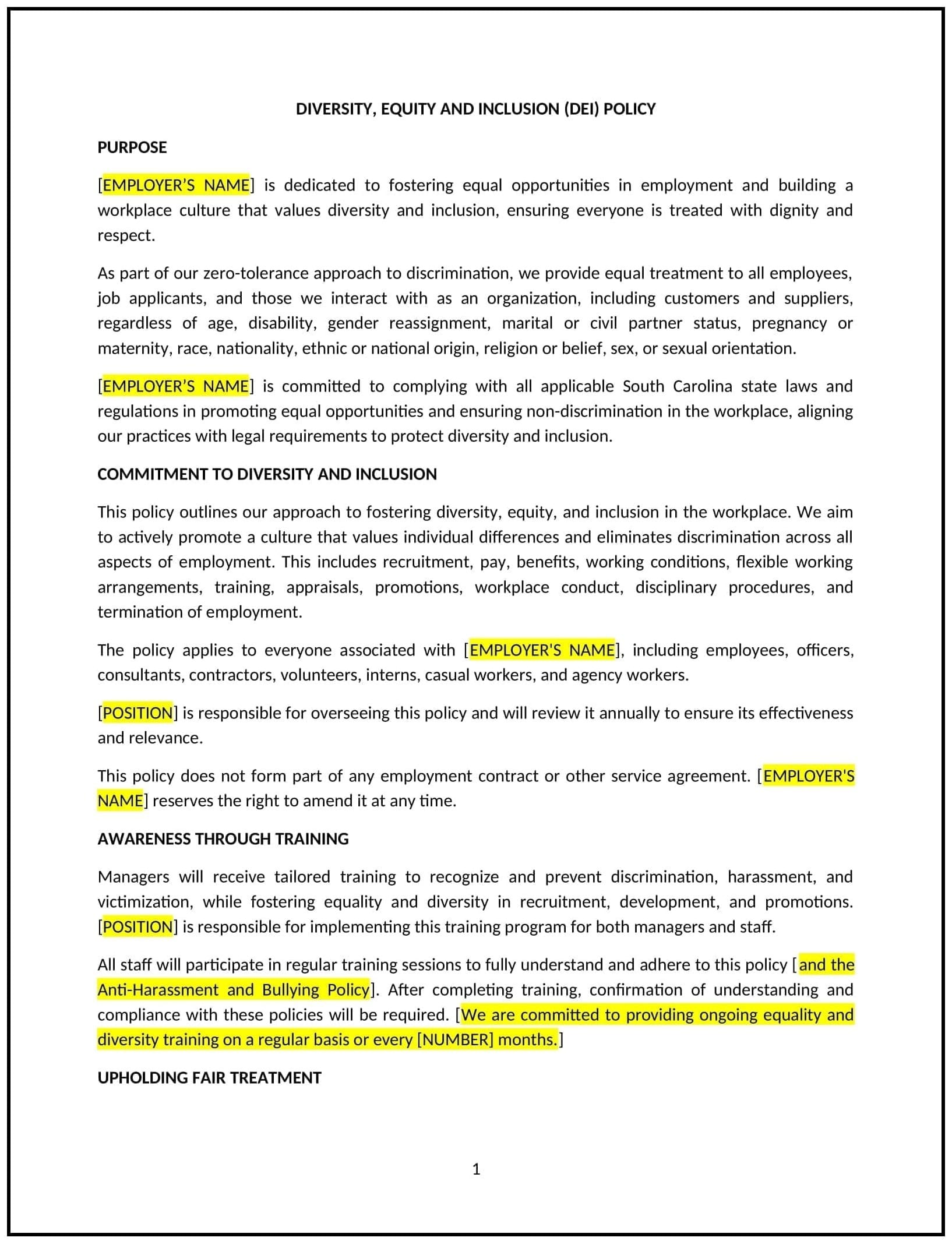Diversity, equity, and inclusion (DEI) policy (South Carolina): Free template
Got contracts to review? While you're here for policies, let Cobrief make contract review effortless—start your free review now.

Customize this template for free
Diversity, equity, and inclusion (DEI) policy (South Carolina)
This diversity, equity, and inclusion (DEI) policy is designed to help South Carolina businesses create a workplace culture that values and respects differences among employees. It outlines commitments to fostering diversity, ensuring equity, and promoting inclusion in all aspects of the business.
By adopting this policy, businesses can attract and retain top talent, enhance innovation, and align with general best practices for creating an inclusive work environment.
How to use this diversity, equity, and inclusion (DEI) policy (South Carolina)
- Define DEI principles: Explain the importance of diversity, equity, and inclusion in the workplace.
- Establish commitments: Outline specific actions the business will take to promote DEI, such as inclusive hiring practices and employee resource groups.
- Provide training: Educate employees and managers on DEI principles and their role in fostering an inclusive workplace.
- Monitor progress: Regularly assess DEI initiatives and measure their impact on the workplace culture.
- Address issues: Create a process for employees to report discrimination or bias and ensure timely resolution.
- Review and update: Assess the policy annually to ensure it aligns with evolving business needs and societal expectations.
Benefits of using this diversity, equity, and inclusion (DEI) policy (South Carolina)
This policy offers several advantages for South Carolina businesses:
- Attracts top talent: Demonstrates a commitment to creating an inclusive workplace, appealing to a diverse workforce.
- Enhances innovation: Encourages diverse perspectives and ideas, driving creativity and problem-solving.
- Builds employee trust: Shows employees that the business values their unique contributions and experiences.
- Aligns with best practices: Supports a structured approach to fostering diversity, equity, and inclusion.
- Reduces turnover: Promotes a positive work environment where employees feel respected and valued.
Tips for using this diversity, equity, and inclusion (DEI) policy (South Carolina)
- Communicate the policy: Share the policy with employees and include it in the employee handbook.
- Provide training: Educate employees and managers on DEI principles and their role in fostering an inclusive workplace.
- Monitor progress: Regularly assess DEI initiatives and measure their impact on the workplace culture.
- Address issues promptly: Take corrective action if discrimination or bias is reported.
- Update regularly: Assess the policy annually to ensure it aligns with evolving business needs and societal expectations.